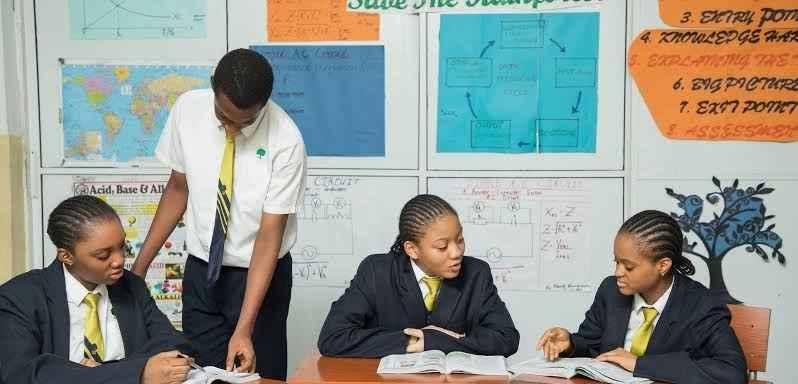Full List Of Compulsory And Essential Subjects For Secondary Schools In Nigeria (2025)
The Nigerian secondary school system in 2025 is built to equip students with both academic knowledge and practical life skills. Whether you're in Junior or Senior Secondary School, you must study certain compulsory subjects along with optional and trade-based courses. This guide presents a full breakdown of these subjects in easy-to-understand tables.
Junior Secondary School (JSS 1–3): Compulsory Subjects
In Junior Secondary School, students are expected to offer 10–13 subjects across various fields. These include core academic areas and introductory vocational education.
JSS Core Subjects Breakdown
| Subject Group | Subjects Included |
|---|---|
| English Language | English Studies |
| Mathematics | Mathematics |
| Basic Science & Technology | Basic Science, Basic Technology, PHE, Computer Studies (ICT) |
| National Values Education | Civic Education, Social Studies, Security Education, CRS/IRS |
| Pre-Vocational Studies | Agriculture, Home Economics |
| Business Education | Business Studies |
| Language Studies | One Nigerian Language (Yoruba, Igbo, or Hausa), One Foreign Language (French/Arabic) |
| Cultural & Creative Arts | Music, Fine Art, Drama |
| History | Nigerian and African History |
Senior Secondary School (SSS 1–3): Core, Electives & Trade Subjects
In Senior Secondary School, students choose subjects based on their career path—Sciences, Arts, Business, or Technology. However, a set of 4 subjects is compulsory for all.
Core Compulsory Subjects (SSS)
| S/N | Subject |
|---|---|
| 1 | English Language |
| 2 | General Mathematics |
| 3 | Civic Education |
| 4 | One Trade/Entrepreneurship Subject |
Elective Subjects Based on Field of Study
Students are expected to choose 3–4 electives depending on their interest or intended career.
Science Electives
| Biology | Chemistry | Physics | Agricultural Science | Health Education | Physical Education | Further Mathematics |
Arts/Humanities Electives
| Literature | Government | History | Geography | CRS/IRS | French | Nigerian Language |
Business Electives
| Economics | Commerce | Office Practice | Financial Accounting | Insurance |
Technology & Vocational Electives
| Technical Drawing | Building Construction | Woodwork | Electronics | Auto Mechanics | Food & Nutrition |
Trade/Entrepreneurship Subjects (Pick at Least One)
| Trade Subjects (SSS Level) |
|---|
| Computer Studies / ICT |
| Catering & Craft Practice |
| Garment Making |
| Electrical Installation |
| Photography |
| Marketing |
| Animal Husbandry |
| Cosmetology |
| Data Processing |
| Fisheries |
| Auto Mechanics |
| Welding and Fabrication |
| Furniture Making |
Summary Table of Subjects by School Level
| School Level | Core Subjects | Electives | Trade Subjects | Total Subjects |
|---|---|---|---|---|
| JSS (JSS1–JSS3) | 10 (Minimum) | None | None | 10–13 |
| SSS (SS1–SS3) | 4 (Compulsory) | 3–4 Based on Stream | At least 1 | 8–9 |
Frequently Asked Questions (FAQs)
Q1: Is History compulsory?
A: Yes, it is compulsory at the junior level.
Q2: Is a trade subject required for WAEC?
A: Yes. All SSS students must register at least one trade subject.
Q3: Can students mix electives from different fields?
A: Yes, one elective from outside the chosen field is allowed.
Q4: Is ICT compulsory in senior school?
A: It is optional as a trade or elective subject, though highly encouraged.
Q5: How many subjects can a student register for WAEC?
A: Students typically register for 8 or 9 subjects.
Conclusion
The Nigerian secondary education curriculum in 2025 offers a balanced mix of academic and vocational training. Junior students gain a broad foundation, while senior students specialize in areas that prepare them for tertiary education or entrepreneurship. Whether preparing for WAEC, NECO, or life beyond school, choosing the right subject combination is vital.











